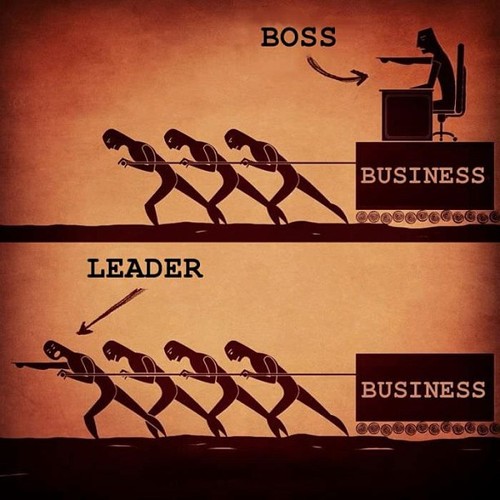Last updated on 2020/01/01
Look, there in the sky! Is it a plane? Is it a new tower or bridge? Or is it … the Superhero Manager?!
While reflecting on the reasons for pursuing a management path in Engineering, it is clear that the drive to ascend to this role did not include an objective of wearing a cape. It is my earnest opinion that it can be said with reasonable confidence that not many people wake up and say to themselves: ‘I am going to go out and try and be a superhero today‘. Specifically, not many Engineering Managers. Through copious amounts of reading and personal interactions I have never personally been informed of nor witnessed another manager clambering around in a mask while doing their daily work. Setting aside a potentially wild Halloween company party scenario, masked vigilantes are not a sight that we associate with the workplace. The dictionary definition of superhero is as follows:
a fictional hero having extraordinary or superhuman powers
superhero (noun) Merriam-Webster
also : an exceptionally skillful or successful person
However, while they might not wear capes, managers have an opportunity to be a superhero every day. Don’t believe me? You don’t have to report to an Engineering Manager to answer the following question as it is a general one that applies to most people. Here goes:
Who are the top 3 people that have the most influence over your current day-to-day professional career?
If there isn’t a person on this list that you would give a label of ‘boss’ then I would be very, very surprised. Now if the question is tweaked slightly to read: Who are the top 3 people that have had the most influence over your cumulative professional career? I still believe that the chances are better than 50% that at least one, if not more, of those three people is a former or current manager. Still not convinced? How about a different question: Is your boss or manager in the top two people in your life that can get you to do things that you don’t want to do?

Hopefully we can all agree that a boss or manager can have a large impact on the individuals or the team that they work with every day. As we know from the adage from Spider Man, “with great power comes great responsibility“. The question that every manager faces whether they realize it or not is: what will each manager do with this power? Will they use it for good (or bad) to influencing the lives of people around them? While we want to believe that every boss out there is a force for good, the examples of bad bosses are easier to find, at least in movies. Here are a few examples:
- Bill Lumbergh (Office Space) – The quintessential caricature of corprate management, Bill is focused on busy work including TPS reports, working on the weekend, and non-confrontational management coercion
- The whole movies: Horrible Bosses & Horrible Bosses 2 – Comedies focused around employees choosing to knock off their overbearing, obnoxious, and abusive bosses. The bosses are two dimensional parodies of some of the most egregious workplace behaviors
- Ebenezer Scrooge (A Christmas Carol) – The classic miser manager trotted out every Christmas. The good news with Scrooge is that the story shows that even the worst managers can change and improve
Recently I heard a story about a student-teacher interaction that was not very positive. In many aspects, teachers and managers share a lot in common. They both have quite a bit of influence over the people around then, whether that is in the classroom or the workplace. Both deal with both objective and subjective evaluations of work and both can have overt impact on the people in their respective spaces based on the end results of these evaluations and the presentation of feedback on the results. In this specific instance, the teacher was refusing to provide a grade on an assignment that was turned in late. However, in this instance the student had been absent due to illness on the due date. In the story, the teacher provided a lengthy explanation about how the student had ample time the week before to complete the assignment and being sick on the due date did not excuse the fact that it wasn’t turned in on time. This lecture even incorporated an impromptu drawing created just to illustrate the timeline and all of the time opportunities for completing it early. However, the syllabus for the class in question stated that the homework policy follows the general school policy which states that an additional 2 class days are to be offered for homework turn in in the event of missing the target date due to illness. This story finally ended with a question: So am I supposed to just know when I am going to get sick?
This story just straight up pisses me off.
How can anyone in a position of power do that to a subordinate? It doesn’t matter if that person is a teacher, a manager, or the President of the United States. Since when does bullying for the sake of bullying for a feeling of empowerment and masochistic control have a place anywhere in our society? *sigh* The previous statement is a wish and a dream. I am well aware that this type of behavior is not new, nor will any post here stem the tide or prevent these scenarios from occurring again in the world. However, as a human being, an Engineer, a manager, and most importantly, someone who has worked to build a platform for conveyance of words, ideas, and advice for others, I believe that there is a social responsibility to fight evil in the world. While this is not a huge evil, in the superhero sense, where thousands or millions of people have the potential to be affected by the actions of a few, the world is a much better place when we afford other human beings the respect and consideration that we would want for ourselves.

Managers do not need a spotlight signal in the clouds in order to be a superhero in their everyday interactions. Some simple internal reflection and introspection can go a long way to making the daily environment a better place to be. This should start with some self-evaluation of the reasons that a manager wants to be in this role. More money? More power? The ability to control the environment? How about giving co-workers a sense of fulfillment and purpose every day? How about creating happiness in others? The ironic thing is that a happy and effective team will outperform a frightened and cowed team any day which in turn will make any manager look better and bring around more power, money, and opportunities. Beyond self-reflection, straightforward and simple actions show the truth behind the intent and purpose of a manager. Finally, leadership is the final key to being a Superhero Manager. Does a manager lead from the front? What about getting your own hands dirty on some of the tasks that aren’t fun, but simply need to be done?
One question I like to ask while interviewing entry level people: What do you want to be when you grow up? This is a somewhat silly question that produces some good feedback. Defining what role an interviewee sees as a goal or target for their career provides good insight into whether they can attain that role in the organization that they are interviewing with. It also provides insights into what they want to achieve in their careers and helps the interviewer to better understand some traits like ambition and drive. There is a fine line here. I would love to have someone on my team who looks at me in an interview and says “I want your job, but I am willing to work hard to get there and learn along the way”. That kind of ambition is fantastic because in the years it takes to build those skills and I am doing the same in my own career while looking to move up. Why wouldn’t I want a strong, capable person coming in behind me to lead the team that I built? Compare that with a manager that I once worked for that, as the story goes, because they went into the CEO’s office and stated that they should not get used to sitting behind the CEO desk because the manager was on their way up and would soon be sitting in that seat. That didn’t end well as the manager was let go soon after that. It is a fine line between the good and the bad here and in most scenarios that managers face. So how does a manager navigate this minefield and promote and just be a force for good in the workplace and the world?
Superhero Manager Step 1: Personal Reflection

The first step in becoming a Superhero Manager starts by looking at a mirror at the person standing there. Who is that person and why are they in this role? What motivates them? How can they do a better job today as compared to yesterday? If you don’t understand who you are and your own strengths and weaknesses, how can you help others improve? This is not meant to put on a mask and always present the same face and demeanor to the people you work with. This is intended to be a journey of self awareness and continuous self improvement.
- Understand Your Own Deficiencies – Begin by attempting to understand your own weaknesses. It is hard to work on improving things that you don’t understand. When I started managing other people I let many of the frustrations and conflicts get to me so much that I would mope around the office. This eventually led to my co-workers giving me a nickname of ‘Grumpy Cat‘. They even bought me a mug to celebrate this nickname. It wasn’t until much later that I realized the anger and frustration that were keeping me back were a huge weakness in my ability to lead the team effectively. This self actualization can be very difficult but is a key element in becoming a Superhero Manager
- Identify Personal Bias – While you may not agree, it is my opinion that all humans maintain a bias in some way towards other people. This is not necessarily a negative, but it is something to attempt to understand so that you can make sure it doesn’t affect your co-workers in a negative way. The student teacher story earlier in this piece included misogynistic statements as part of the story retelling. The teacher appeared to have some sort of bias against female students in some way. You may subconsciously give the best tasks to people that go out to lunch with you. You may never promote someone that is left handed. The point here is, if you can continually work to understand your own bias tendencies then you can work on making sure that you are providing a fair and equal workplace for everyone you work with
- Work On Self Improvement – It is one thing to identify the traits and tendencies that you have. Working on addressing and improving on these weaknesses and biases is harder but is essential to becoming a Superhero Manager. Getting bogged down in many issues and fires and unanticipated problems at work happens. Been there, done that. I recently took a step back and realized that I had not been communicating well some teammates and redoubled efforts to have 1-on-1 meetings with all direct reports. It added a lot of work and the effort was not easy, but the effort was immediately noticed and the feedback has been wonderful.
Superhero Manager Step 2: Observe and Respond

The second step in becoming a Superhero Manager is to observe and react to your team. Who are the people that are on your team? Do you realize that they are real people with their own lives outside of work and that they have interests, hobbies, and a lot more people that they interact with besides your team of people? Do you understand that their feelings and personal fulfillment are important to both them and you as a manager? When teammates are happier and feel more fulfilled their efforts will be more focused and overall their productivity should be higher.
- Be A Great Listener – You won’t be able to hear and understand what is going on with a team if you are always talking or if your voice is the loudest in the room. Superhero Managers take the time to simply step back and listen to the conversations in the hallway, the interactions in a meeting, and the back-and-forth on messaging apps. This skill gives the manager an ability to spot trends and hear new and vibrant ideas. It allows for observation of the morale and determination of the direction that the culture is facing. Many of the targets in this article start with listening and observing. This the first half of the challenge to being a Superhero Manager and someone can’t accomplish the second half without mastering this skill first.
- Don’t Stay Quiet – Hopefully everyone has a voice on your team but also know that whether it is intended or not, the voice of the manager carries more weight. This can be used for great good in publicly promoting ideas and successes on the team. It can also be used to great effect when providing critical feedback in private. In order to recognize successes and events that need feedback, first sit back and observe the events and interactions among your teammates. This may be as simple as someone talking over a teammate in a meeting to more complex interactions where more difficult conflicts are exposed. A Superhero Manager cannot stay quiet when these events occur. Observing and then speaking up to keep communication flowing and providing feedback are important aspects for any manager. Compare this effort to a manager observing, but not doing anything about these types of interactions. While one singular event may not affect the team in any significant way, these events happen every day and over time they will build up and affect team efficient and morale. Managers always need to stay vigilant and speak up.
- Promote The Quieter Voices – We don’t have computers and robots doing the jobs (yet) so every team is comprised of human beings. Humans are messy. Personalities differ. Confidence levels are different. Ideas, opinions, and the ability to promote one’s own ideas vary wildly from person to person. It should be the goal of any Superhero Manager to ensure that all voices on a team have weight and an open platform for contribution to the team. It is very easy for a few louder and more confident voices to override the smaller and quieter voices in meetings and in group discussions. Everyone is there for a reason and by allowing some of the people to stay quiet you are losing out on a significant chunk of input that could be making things even better. Find ways to allow each voice to be heard and get the full output of the team moving in a positive direction.
- Implement 1-on-1 Meetings – This type of meeting is amazing for communication and growth. Many companies struggle to complete performance evaluations in an effective way. At best they happen multiple times a year and at worst they are either non-existent or a once-a-year event that is easier to pay lip service to and move on instead of actually providing real, honest feedback that can help people grow. 1-on-1 meetings attack this directly by providing a two-way communications path and relationship building functions together in one place. It allows for getting and giving feedback with people and defining professional goals and growth opportunities. It allows for constructive, direct feedback around conflicts and work output. It allows a Superhero Manager to set a tone for the team through individual interactions. It provides a method to sample the pulse of the team and keep tabs on morale. While it can feel like a lot of work to setup and run effectively, the results greatly outweigh any inconvenience and should be a tool in every good managers toolbox.
Superhero Manager Step 3: Be A Leader

This one might seem obvious on the surface. The problem is, implementation can be very hard to achieve. Being a leader is not simply telling others what to do:
Like true superheroes, they can turn a bigger purpose into reality, they never give up, show courage, have the ability to face fears and apply a strong cultural code of conduct. Some are even so powerful that the mere survival of their companies depends on them. When Steve Jobs left Apple in 1985, the company went into decline and he had to return to save it.
From the article: Great Leaders Aren’t Superheroes: They Create Them
Being a good leader often means taking the hard road and building those up around you. It isn’t about being getting fame and fortune. It can mean putting the spotlight on someone else when success is achieved and taking over the spotlight when things fail. Great leaders are tactful, communicative, and are an integral key to the success of any project or business.
- Take Ownership – Superhero Managers take ownership for their actions and the products, output, and end results for their team. They occasionally even go above and beyond for things that are outside the scope of their team. They believe in the goals of the organization and know that taking accountability for finding solutions to problems is a worthwhile endeavor. One rule I try and set for my team is that “it may not be our fault, but it is our responsibility“. We don’t pass the buck, we step up, own it, find a solution, and move on.
- Practice Balanced Empathy – Being empathetic is a critical skill for a good manager. Putting oneself in the shoes of someone who is struggling can be a difficult task on the best of days, but it is incredibly important for building positive relationships with teammates. However, empathy must be balanced for a manager against the necessary needs and requirements of the business. This concept of balanced empathy is very difficult to achieve. Fully understanding the challenges that a person is facing while motivating them to get past those challenges and deliver on time and on budget can be a monumental feat. This requires skill and patience to achieve and can often require many of the tools in the manager’s toolbox to achieve properly. Depending on the magnitude of the roadblocks and also on the type (task roadblocks, interpersonal conflicts, personal issues outside of work) tools like 1-on-1s, mentoring, listening, setting up peer pairing for work, and other tools may be needed. Each scenario is different and a Superhero Manager knows this and works to tailor the response to the events.
- Lead From The Front – It is very difficult as a teammate to get tasked with something difficult that requires going above and beyond only to see the person doing the tasking think that their job is finished and walk out the door after assigning the task. Having been that teammate when staying late to work on a big project and watching a manager walk merrily out the door to head home just plain sucks. As a manager now myself I try and follow a philosophy of “don’t ask someone else to do something I am not prepared to do myself.” This doesn’t mean that I need to get in and write the code for some difficult feature, although I have done that on occasion. This means that if I am asking someone to stay past five o’clock to work on a big bug for a customer I am right there with them. This means that if the team is in crunch time for a project delivery timeline and coming in on the weekend I am there holding the door open for them with one hand and holding doughnuts in the other. While we maintain our separate roles, the team coding and me managing, when we do something above and beyond we do it together to try and help each other out and make painful scenarios a little less painful as a team.
- Give Fame Where It Is Due – A Superhero Manager follows the philosophy that the people most responsible for the success (the team) should get the credit for success and the manager takes responsibility for the miscues. This philosophy encompasses more than just success and blame. A Superhero Manager also understands that solutions can come from anyone on the team, not just those defined as superheroes. 20th century org charts reflect an idea that more structure and vertical layers imply that the people higher up the ladder have more answers and solutions. 21st century org charts are often flatter and celebrate input and ideas from all people on the chart, no matter where they are in the hierarchy. This reflects a mentality that the team is stronger than the individual. Creating an open environment and culture for creativity and ideas allows the full brainpower of everyone on the team to contribute and allows the manager to lead a more successful team.
Anyone with the aspiration to be a Superhero Manager has their work cut out for them. It requires a varied and different skill set that can change each day. This is not a plateau to achieve and then put things into cruise control going forward. It is more like a roller coaster where everyone on the team is riding along in the cars while the manager attempts to build the track in front of them as things move along. This is a great analogy because when riding a roller coaster everyone wants the fun and exhilarating parts, the steep drops, the loop-de-loops. But those things require more effort, time, and material and we can’t always be in the middle of the fun stuff. Sometimes we just need to connect to the chain drive and be slowly dragged along, hopefully in an upwards direction. Sometimes we need to coast for a bit and catch our breath. Sometimes we simply run out of track and crash and have to restart somewhere. Managing a team is a never ending job. It requires constant effort and work and a sense of Continuous Improvement every single day.
The business world today is different than it was 20, 30, and 50 years ago. Modern organizations require different leaders and the skills for a Superhero Manager are much softer than they were many years ago. There is no certification that states that someone is a good manager in a modern organization.
These modern organizational designs call for a special breed of leadership. They require networked or distributed leadership, where vision and values overrule functional bundling of competences and skills. For example, GE and IBM dispensed with the notion that leaders only operate out of corporate headquarters by posting leaders in regional centers of excellence.
Networked leadership implies humbleness. In the ultimate network, there are many great leaders. Great leaders understand that success results from growing the power of others while letting their own power fade over time. Alfred Sloane, CEO of General Motors from 1923 to 1956, humanized his hero status, leaving his headquarters every three months and working openly as a salesman at GM dealerships across the US.
From the article: Great Leaders Aren’t Superheroes: They Create Them

The tools, methodologies, and abilities exist for anyone to be a workplace superhero. We can all work to leave the world in a little bit better state than where we found it each and every day. Managers have an amplified impact on those around them due to the defined leadership relationship that they have with those on their team. Each manager has to decide for themselves what kind of manager they are going to be. Do you choose to be a simple manager, clocking in and clocking out every day and not giving things much thought? Or do you choose to take the harder path and metaphorically wear that cape and be the Superhero Manager that inspires people and makes the world a better place to be? If you need more motivation, go back and stand in front of the mirror, look at the person starting back at you and in the deepest, most gravelly voice you can must say out loud: “I am Batman’s…….manager!“. Good luck and thanks for reading!



Comments are closed, but trackbacks and pingbacks are open.